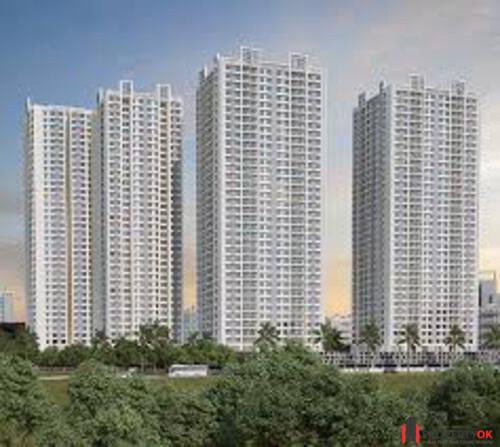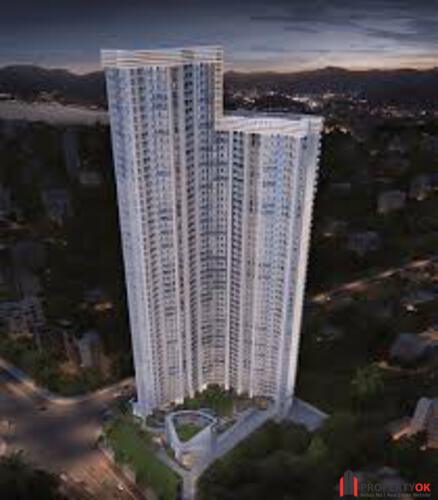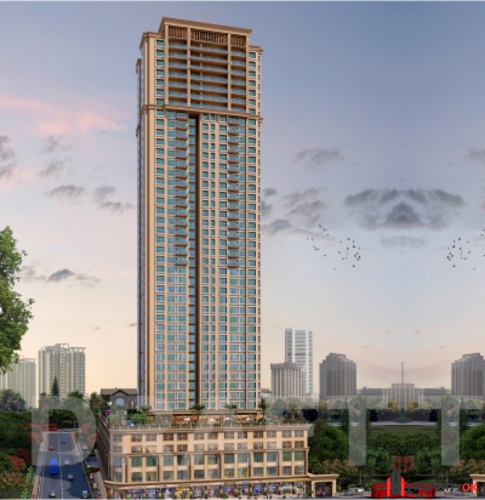Investing in property can be a great way to increase your wealth and create long-term financial security. But before you jump head-first into the real estate market, it’s important to understand the different types of investments available and their pros and cons.
This blog post will look at one popular form of property investment: freehold property investing. We’ll explore the benefits of this type of investment and offer tips on how you can get started. So if you’re considering investing in freehold property, read on to learn more about the advantages and disadvantages of this option.
Ready to make a move? Start your search today!

What is a freehold property?
Regarding property ownership, there are two main types of tenure: freehold and leasehold. In simple terms, freehold means you own the property outright, whereas, with leasehold, you only own the property for a set time (usually 99 or 999 years).
There are several benefits to owning freehold property. Firstly, it gives you complete control over your property and what you do with it. You can make any alterations or improvements without getting permission from anyone else. Secondly, it can be a more cost-effective option in the long run as you won’t have to keep paying ground rent or service charges to a landlord. Finally, freehold ownership usually comes with fewer restrictions than leasehold, so you’ll have more freedom regarding things like subletting or carrying out modifications.
Also read:
THE IMPORTANCE OF OCCUPANCY CERTIFICATE (OC) IN REAL ESTATE
Of course, there are also some drawbacks to owning freehold property. The biggest one is that you’ll be responsible for all repairs and maintenance costs, so you’ll have to foot the bill if something goes wrong. Additionally, if you live in a block of flats or a terraced house, your neighbours will also be freeholders meaning they could make changes to the shared areas without consulting you first.
Whether freehold or leasehold is the right option for you will come down to your personal circumstances and preferences. If you want complete control over your property and don
Is freehold property an asset?
Regarding property investment, freehold is often seen as the more desirable option. And it’s not hard to see why – with full ownership comes greater control and, in many cases, the potential for capital growth.
But is freehold property always an asset? This blog post explores the pros and cons of investing in freehold property to help you make an informed decision.
The main advantage of investing in freehold property is that you will fully own the asset. This means that you can do whatever you like with it, including making changes or carrying out improvements (subject to any planning permission requirements).
What’s more, as the owner of a freehold property, you will benefit from any future capital growth. This could come about due to general market conditions or specific factors such as planning permission being granted for redevelopment.
Of course, there are also some disadvantages to investing in a freehold property. One is that you will be fully responsible for all maintenance and repair costs. This can be a significant expense if something major goes wrong, such as a roof leak or boiler breakdown.
Read more:
8 VITAL COMPONENTS OF A BUILDER BUYER AGREEMENT
Another downside is that you may need help to sell your property if you need to move for any reason. This is because buyers may be put off by the responsibility and potential cost of taking on a freehold property.
So, is freehold property always an asset?
Freehold property advantages
Regarding property investment, freehold offers several advantages that leaseholds can’t match. Here are just a few of the benefits of investing in freehold property:
1. You own the property outright
As the owner of a freehold property, you have full and exclusive ownership rights. This means you can live in it, rent it out, sell it, or even develop it as you see fit – without getting permission from anyone else.
2. There are no ground rent or service charges to pay
With freehold ownership comes complete freedom from ground rent and service charges. These can often be significant costs associated with leasehold ownership, so owning a freehold can help to keep your running costs down.
3. You have more control over your property
Because you own the property outright, you have much more control over what happens to it. With leasehold properties, you often have to adhere to strict rules and regulations the landlord or managing agent sets. But as the owner of a freehold property, you can decide how to use and improve your home.
Freehold property disadvantages
A few disadvantages of investing in freehold property should be considered before making a purchase. These include:
1) The potential for negative equity – if the property market declines, the value of your freehold property could fall below the outstanding mortgage balance, leaving you with negative equity.
2) Higher interest rates – freehold properties typically come with higher interest rates than leasehold properties, which can eat your profits.
3) Maintenance and repair costs – As a freehold property owner, you will be responsible for all maintenance and repair costs. This can be a significant expense, particularly if the property is older.
4) Difficulty selling – due to freehold ownership, it can be difficult to find a buyer when you want to sell your property. This can lengthen the time it takes to sell your property and result in a lower sale price.
Freehold property rights of the owners
When it comes to freehold property rights, owners have several options available. They can sell their property, lease it, or keep it for themselves. Each option has pros and cons that should be considered before making a decision.
Selling: If you sell your property, you will no longer have any rights to it. You will also need to find a buyer willing to pay the asking price. This can be difficult, especially in today’s market. Leasing: If you lease your property, you will retain the ownership rights while someone else pays you to use it. This can be a good way to generate income from your property without selling it. However, you will need to find a responsible tenant willing to follow the terms of the lease agreement.
Read more:
WHAT IS THE MARKET VALUE OF LAND AND HOW TO CALCULATE IT?
Keeping: If you keep your property for yourself, you will retain all rights. This means you can do whatever you want with the property, including selling it or leasing it. However, if you decide to keep the property, you must pay for all maintenance and repairs yourself.
How to invest in freehold property
Investing in freehold property can be a great way to get on the property ladder and secure your future. However, it is important to understand the pros and cons of this type of investment before making any decision.
The main benefit of investing in freehold property is that you will own the property outright. This means that you will have full control over what happens to the property, and you will not have to worry about paying rent or leasehold fees. You will also be able to pass on the property to your children or sell it later.
However, there are some drawbacks to investing in a freehold property. Firstly, it can be more expensive than leasehold properties. Secondly, if you want to sell the property or move out, you may need help finding a buyer willing to pay the same price you paid. Finally, if the local area experiences any negative changes, this could impact the value of your investment.
Conclusion
Investing in freehold property can be a great way to make money and create long-term security. The pros of investing in freehold properties include the potential for capital growth, the ability to control your investment decisions, and increased privacy from landlords.
On the flip side, it also comes with risks that must be considered before making such an investment. It is important to research and weigh all of these factors when deciding whether this type of investment is right for you.
Join the experts! Discover your dream home now!
Frequently Asked Questions:
- Is freehold property safe to buy?
Freehold property is generally considered safe to buy as it provides the buyer with full ownership of the land and the building for an indefinite period of time. However, as with any real estate purchase, it is important to thoroughly research the property, including any potential legal or physical issues, and to seek professional advice from a real estate agent, lawyer, or surveyor.
Additionally, it is important to carefully review the terms and conditions of the sale, such as any covenants, restrictions, or obligations associated with the property.
- What are the benefits of having freehold property?
Full Ownership: Freehold property provides full ownership of both the land and the building, giving the owner complete control over the property and the ability to make any modifications or improvements as desired.
Indefinite Ownership: Freehold property provides indefinite ownership, allowing the owner to pass the property down to future generations or sell it without any restrictions.
Increased Property Value: Freehold properties generally have a higher value compared to leasehold properties, as the owner has full control over the property.
Flexibility: Freehold property provides greater flexibility in terms of use and development, as the owner has full control over the property and can make changes without the need for consent from a landlord.
Potential for Capital Growth: As a result of full ownership and control, freehold properties have the potential for capital growth over time, providing the owner with a valuable asset.
- What is the difference between freehold and leasehold property?
Freehold and leasehold are two types of property ownership. Freehold property provides full ownership of both the land and the building, giving the owner complete control over the property for an indefinite period.
On the other hand, leasehold property provides the right to occupy and use the property for a specified period, typically ranging from 99 to 999 years, with the land ownership remaining with the landlord. Leasehold property owners are subject to certain conditions and restrictions imposed by the landlord and must pay an annual ground rent to the landlord.

 Thank You
Thank You




